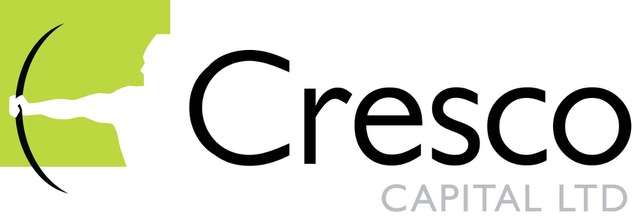This article belongs to our exclusive single-family office guidebook, where we give guidance on the most relevant topics for newly established and already existing family investment vehicles. It was contributed by Charles Owen, Managing Director of Cresco Capital Ltd., a leading venture investment consultancy.
Small and medium sized companies form the backbone of most economies – investing in start-ups is an investment in the future economy.
Stock picking investors will frequently invest in small and micro-cap listed companies as part of a diversified portfolio in order to access higher risk but potentially substantially higher gains. Taking this to its logical conclusion investing in start-ups represents the greatest potential gains but equally the greatest risk. Given the binary nature of this risk – a distinct possibility of losing the entirety of an investment – Family Offices seeking to invest in start-ups must find the right way to access this market and, having done so, create a strategy to guide their investment decision making.
Three ways how family offices can access the start-up ‘market’
By its very nature, the startup sector is highly diverse and open ended with an endless choice of investment opportunities. Unlike listed companies which exist within a defined exchange, there is no single place where an investor can review the start up universe.
To ensure that they are investing in the very best opportunities in their sector Family Office investors need to ensure that hundreds of potential investments cross their desk each year. To do this may require a combination of three approaches to the market.
1. Direct investment
Intuitively the most obvious approach is to establish an internal investment team and give them responsibility for sourcing new investments, in addition to closing and managing them. If supported by a clear investment strategy this approach is straightforward and can be effective. However it should be noted that just as investors are seeking to source the best opportunities, the strongest start-up founders are equally focused on finding the right investors. Family Offices, not always known for being easy to approach, are therefore competing directly with VC firm’s and will need to expend considerable effort in creating a presence in their chosen funding markets.
2. Co-investment
An alternative or synergistic strategy is to act as a co-investor alongside specialist institutional funds who would source the investments and act a lead investor in the transaction. Acting as a co-investor would enable the Family Office to reduce the size of its investment team and potentially build a larger portfolio of investments working with a number of lead funds.
3. Brokered /networked investment
Finally do not ignore the benefits of aligning your investment interest to organisations that are highly active in the start-up space. There are a large number of these ranging from accelerators, corporate venturers and specialist corporate finance houses and each of these would welcome knowledge Family Office investment strategies and be able to make introductions accordingly.
Constructing a start-up investment strategy

Constructing a startup investment strategy: an integral part of the direct startup investment journey of family offices
Given the very diverse nature and sheer quantity of start-up investment opportunities, a properly constructed investment strategy will provide the necessary focus and enable the investment team to narrow their choices.
On the assumption that a decision to invest in start-ups is itself part of a wider diversification strategy alongside other investment activities than at a high level there are probably three further key decisions to be made:
1. Investment thesis
The majority of Family Offices will have already instituted an investment thesis for their overall fund allocations, and the same structural thinking should apply to their start-up investments. Whether it be a focus on sustainability, a preference for SaaS technology business models or simply a desire to support economic growth on a regional basis, the investment thesis represents the ‘big bet’. Directing investment funds into this narrow channel of focus should deliver against a long-term objective, be it driven by an ethical, societal or investment return mandate.
This focus brings with it considerable additional benefits in investment expertise, sector knowledge and investment monitoring.
2. Portfolio and transaction size
The binary nature of risk when investing in start-ups determines that any sensible investor will adopt a portfolio approach recognising that inevitably some start-ups will fail. The size of the start-up investment portfolio should be decided as part of the wider investment allocation decision
This decision then drives the quantum of each investment according to the available resources. Investing in, and then monitoring start-ups, is resource heavy and typically most VC’s work on the basis that each investment professional can effectively manage between 3 and 6 portfolio investments at any one time. The resultant preferred transaction size will then itself have an impact on preferred investment phase.
An important consideration is the weighting of ownership within the post-investment cap table. It’s unlikely that any start-up will be offering the opportunity for a majority position, but Family Offices may seek to invest sufficiently to be able to negotiate specific investor protections and controls.
Assuming that the start-up attains the planned for fast growth then it will be seeking to undertake a number of funding rounds to support this growth. Investors should therefore expect to participate in these follow on rounds in order to maintain or increase their holdings and funds should be reserved accordingly.
3. Investment Phase
Unlike more mature companies where growth is delivered through astute long term strategic decision making, start-ups can progress through their initial growth phases very rapidly with valuations increasing by significant percentages in each funding round. Definitions frequently vary but a simple analysis of start-up investment phases could be described as follows:
Pre Seed – conceptual or very early stage product, limited or nil commercial traction, limited cash runway. Investment funds typically utilised as working capital for product development.
Seed – early-stage product, limited revenues, business model not commercially proven, loss making. Investment funds typically utilised as working capital for product refinement, initial marketing and growth of team.
Series A – defined initial product, commercial traction, business model evidencing KPI’s and route to scale, identification of timeline for profitability. Investment funds typically utilised as working capital to drive scaling of the business.
To determine focus on preferred investment phase the strategy therefore needs to define a preferred balance of risk and combine this with resource implication of the differing phases. For Family Offices to a large degree this will be driven by preferred investment size with the costs and resource implications of very early-stage investments frequently being sub optimal.
Investment monitoring & management
Investing in start-ups should not be seen as a passive activity. As it is unlikely that any investor will obtain a majority shareholding it is of increased importance to ensure that sufficient investor protections are in place at the outset. Family Office investors generally have the equivalence of fund investors and so should expect similar benefits.
At minimum, but subject to relative transaction size, investor protections should include; negotiation of the investment agreement, requirement for a Board position or Board observer status and agreement to the format and process of regular reporting.
Softer issues but of equal importance in monitoring and supporting the investment would be taking the time to properly get to know the founding team, evidencing willingness to support the business through advice and introduction of appropriate contacts.
Investing in start-ups is all about investing in the future economy – investors must recognise that this a journey and not a process.

About the contributor: Cresco Capital Ltd
Established in 2009 and regulated by the Financial Conduct Authority Cresco Capital is a specialist corporate finance firm working with a wide range of growth businesses. Acting as an advisory firm we provide clients a wide range of services from strategic planning, investment preparation, and M&A work through to direct fund raising and project finance.
Cresco carefully nurtures strong ongoing relationships with a wide investor base, including our own private client network, family offices and institutional funds.
Contact: Charles Owen, Director.
E-Mail: c.owen [at] crescocapital.co.uk
Website: http://crescocapital.co.uk
Picture source (1): Patrick Perkins
Article Illustration provided by Rentschler.Digital



